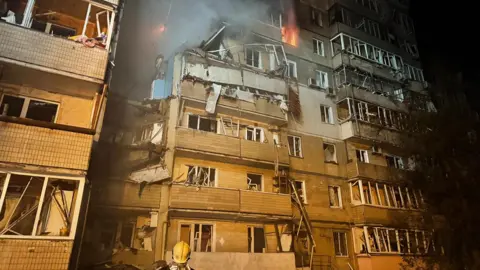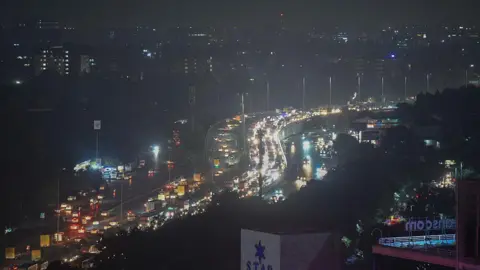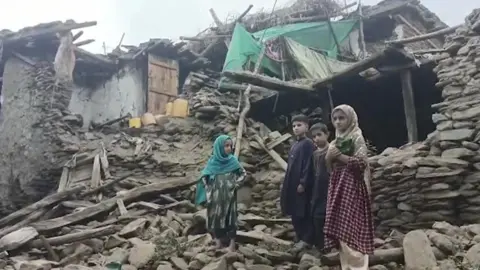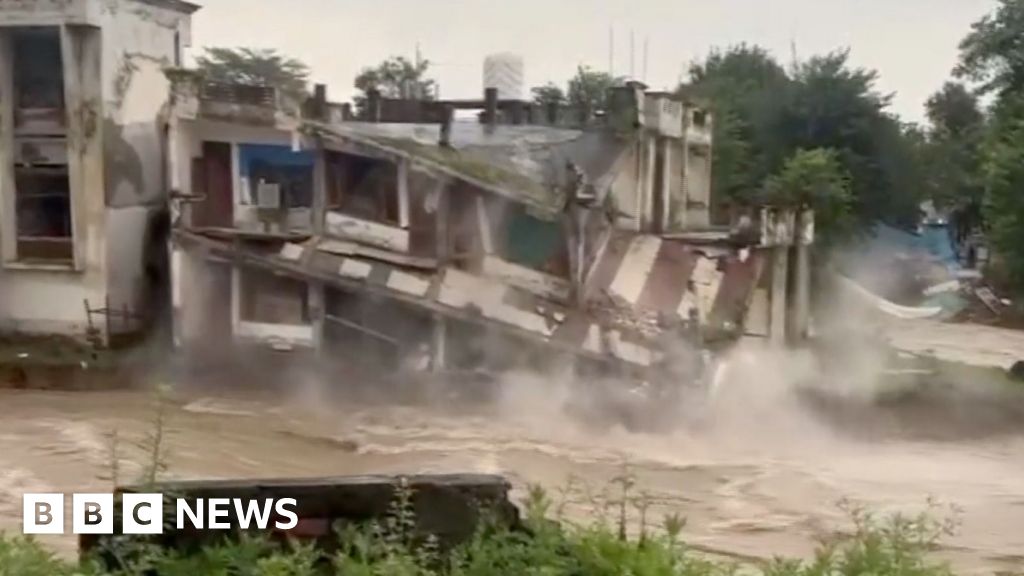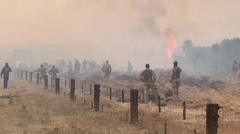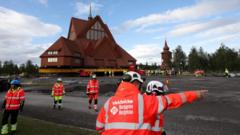In the southern Indian city of Bengaluru, commonly referred to as India’s Silicon Valley, extensive flooding has recently emerged as a result of heavy rainfall. The city has recorded over 100 mm (4 inches) of rain since Sunday, an occurrence deemed rare for the region, according to local meteorological experts. As of Monday, the situation has resulted in the unfortunate loss of three lives, including that of a 12-year-old boy, due to rain-related incidents. The local government remains on high alert for additional pre-monsoon showers anticipated on Tuesday, caused by cyclonic conditions over the Andaman Sea.
Much of Bengaluru has been paralyzed by waterlogging, with major thoroughfares rendered impassable and numerous employees of global tech firms mandated to work remotely due to the hazardous commute. The heavy downpour has not only disrupted transport but has also caused significant property damage; a wall at a software company in the tech-centric neighborhood collapsed, resulting in the death of a 35-year-old employee.
As residents grapple with knee-deep water on city streets and homes submerged in floodwaters, Karnataka's Deputy Chief Minister, DK Shivakumar, assures citizens that the city corporation is actively identifying and addressing 210 flood-prone areas. He sought to calm public fears by stating there is “no need for the people of Bengaluru to be worried.” However, the reaction has been mixed, with urban residents expressing dissatisfaction with the government’s response.
Bengaluru's ongoing flooding crises have been a focus of political contention, particularly between the ruling Congress party and the opposition Bharatiya Janata Party (BJP), which has accused the local government of neglecting the rain-related infrastructure challenges. The BJP has called for an immediate allocation of 10 billion rupees ($117 million) for relief efforts, while the Congress party counters, indicating that such issues stem from long-term neglect across various administrations.
Experts attribute the floods to rapid urban development that has compromised green spaces and wetlands in the city, combined with inadequate urban planning. The situation has sparked outrage on social media, with residents holding officials accountable for what many see as a failure to maintain essential infrastructure amidst increasing environmental pressures. As the city braces for more rainfall, the long-standing issues at the heart of Bengaluru's infrastructure may demand urgent attention and a reevaluation of future urban planning strategies.
Much of Bengaluru has been paralyzed by waterlogging, with major thoroughfares rendered impassable and numerous employees of global tech firms mandated to work remotely due to the hazardous commute. The heavy downpour has not only disrupted transport but has also caused significant property damage; a wall at a software company in the tech-centric neighborhood collapsed, resulting in the death of a 35-year-old employee.
As residents grapple with knee-deep water on city streets and homes submerged in floodwaters, Karnataka's Deputy Chief Minister, DK Shivakumar, assures citizens that the city corporation is actively identifying and addressing 210 flood-prone areas. He sought to calm public fears by stating there is “no need for the people of Bengaluru to be worried.” However, the reaction has been mixed, with urban residents expressing dissatisfaction with the government’s response.
Bengaluru's ongoing flooding crises have been a focus of political contention, particularly between the ruling Congress party and the opposition Bharatiya Janata Party (BJP), which has accused the local government of neglecting the rain-related infrastructure challenges. The BJP has called for an immediate allocation of 10 billion rupees ($117 million) for relief efforts, while the Congress party counters, indicating that such issues stem from long-term neglect across various administrations.
Experts attribute the floods to rapid urban development that has compromised green spaces and wetlands in the city, combined with inadequate urban planning. The situation has sparked outrage on social media, with residents holding officials accountable for what many see as a failure to maintain essential infrastructure amidst increasing environmental pressures. As the city braces for more rainfall, the long-standing issues at the heart of Bengaluru's infrastructure may demand urgent attention and a reevaluation of future urban planning strategies.






